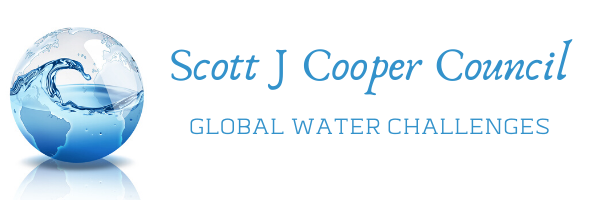The water shortage crisis is becoming more serious in the US. Pragmatic solutions are, therefore, the need of the hour to prevent this crisis from getting out of control.
Solutions for Water Shortage
One of the simplest ways to address the water shortage crisis in the country is to improve farming methods. This is because agriculture consumes a substantial amount of water resources. Fallowing farmland used for cattle feed is the easiest way to alleviate the water shortage crisis in the US, according to the analysis of one study.
The study was carried out by the Northern Arizona University. The researchers mentioned that in the US and in many other parts of the world, limited water resources are being consumed at a faster rate than they are being replenished. This is definitely an unsustainable situation, which will deplete limited freshwater resources in the future if active measures are not taken now.
Not to mention, this consumption trend is already creating problems for people all across the globe as well as ecosystems.
In the US, the water shortage problem is deteriorating and posing great threats to the environment. Several species of fish in the western rivers of the US are now facing a threat to their existence due to the compounding water shortage crisis. Lack of water is also creating many problems for residents living in cities along the western part of the country.
According to Globalcitizen.org, Matt Damon Has Helped 16 Million People Get Access to Water.
The study published in the research journal, Nature Sustainability, revealed that in the western US, agriculture accounts for over 86 percent of water consumption in the region. Hence, improvements in agricultural methods that lead to lower water consumption can reduce the severity of the water shortage crisis in the western part of the US.
A large percentage of this water is used on farms that grow fodder like grass hay and alfalfa for animals. The researchers said that better agriculture practices can mitigate the threats to rivers in the region, particularly the Colorado River Basin, which is among the worst affected by the crisis.
Fallowing to Reduce Water Shortage
The authors suggested rotational farm fallowing as a means of reducing water consumption on these farmlands. Fallowing is an ancient farm technique and is as old as farming itself. In this method, the areas used to grow crops are left uncultivated for a time period that is long enough to enable them to recover. Such a practice is necessary to maintain high crop yields and good soil quality, which is crucial for the quality of the crops. Under rotational fallowing, parts of the farmland used to grow different crops are systematically allowed to rest and recover.
Besides improving soil quality and crop yields, this old farming technique can also significantly reduce water consumption and thus alleviate the water shortage in the region. This method is both simple and affordable.
The study also analyzed the worsening river problem in the region where important rivers like the Colorado River are suffering increasingly lower flow rates. The authors identified various factors contributing towards river water depletion and also suggested countermeasures that may improve the water shortage problem in the region.
Causes of Water Shortage
One of the key points that the authors discovered was that around two-thirds of cattle feed grown in the region is used for beef production while the rest goes towards dairy farming.
The researchers used data-intensive maps of agricultural areas to extract necessary information. Thanks to these maps, they found that the river depletion problem has its roots in the farmlands that use this water for growing fodder like alfalfa. The close examination of the source of the water shortage and its possible impacts on the ecosystem may allow other researchers to find more ways for conserving water.
The researchers have carefully analyzed the areas where animal fodder is grown and then modeled the rate of water consumption. They found that this was linked to the depletion of nearby rivers. In addition to scrutinizing highly detailed maps, the researchers also investigated the supply chain to identify locations where the end products – beef and dairy – are transported and finally consumed. They also studied the patterns of areas that consume hay and alfalfa. Increased consumption of beef and dairy is leading to a strong negative impact on rivers and freshwater resources.
The authors also made estimates about the effects that reduced beef consumption and better water consumption methods will have on the environment, rivers, agricultural economies and food security.
The lead author warned that we are using far too much water to feed cows that ultimately end up on our dinner plates in the form of meat and dairy products. Higher beef consumption is creating a strong negative impact on the Colorado River Basin. The amount of water used from this ecosystem for rearing cattle (ultimately used for beef and dairy) is three times greater than the consumption of water by nearby urban areas and industrial areas combined. That is, beef production is using three times as much water as the cities and industries combined.
The researchers expressed their concerns over these numbers. They said that although they were expecting high water consumption for cattle farming, nobody anticipated that it would be this serious.
However, despite the serious effects of beef consumption on water resources in the region, the authors pointed out that fallowing can greatly improve the water shortage crisis. They said that it is rare to find such practical solutions that can substantially resolve environmental problems without causing too much disruption. Not only is fallowing simple, it is also affordable. Farmers just have to allow areas of their farmland to rest and recover without having to work on it in any way.
International Collaboration
The study was conducted in collaboration with 12 universities around the world, including the University of Twente, Nanjing Audit University, National University of Singapore, Baylor University, Columbia University and more. The study authors said that further collaboration and sustained research is necessary to arrest the water crisis that is leading to severe problems all around the world.
The authors also suggested that there are several ways of reducing water consumption, for instance, through the use of farming methods that depend less on cattle feed crops.

Jafara Shinkasi is a renowned water conservationist and environmentalist hailing from Malawi, Africa. Born and raised in the rural area of Mchinji, Shinkasi has dedicated his life to the cause of water conservation, driven by the acute water scarcity he witnessed in his childhood.
Shinkasi studied Environmental Science at the University of Malawi and later earned a PhD in Water Resources Management from the University of Cape Town, South Africa. Upon his return to Malawi, he founded the Malawi Water Conservation Initiative (MWCI), a non-profit organization committed to promoting sustainable water practices and improving water accessibility in rural areas.


